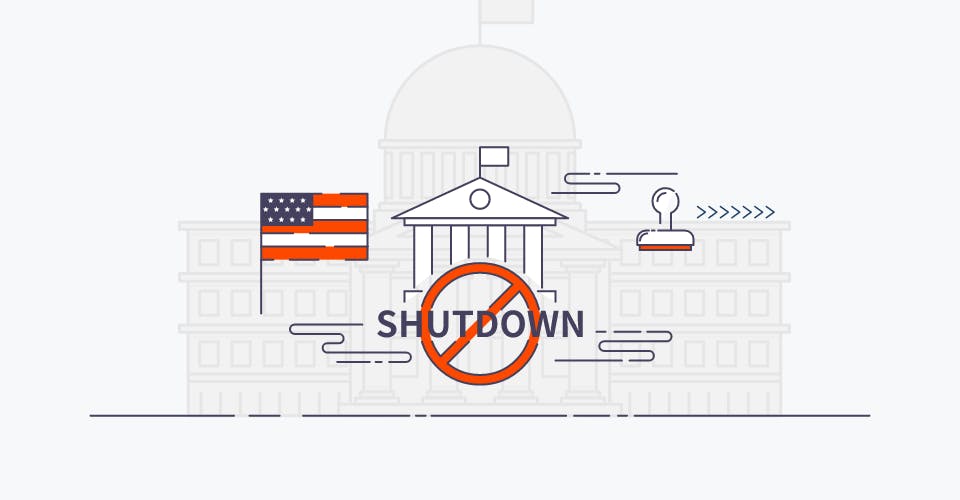It’s happened in the past, and it might just happen again this year. The U.S. government could shut down in a matter of days as funding runs dry and Congress is scrambling to pass a temporary funding bill that would prevent the shutting down of critical government agencies. In terms of U.S. immigration, some of the critical agencies that affect the lives of immigrants and their applications include the State Department, the Department of Labor, as well as the U.S. Citizenship and Immigration Services (USCIS).
In this post, as the deadline nears, we will cover and provide some insights as to how a government shutdown might affect immigration processing in a variety of ways. It is important to know that in the event of a shutdown, critical or “essential” jobs still remain and these workers simply forgo being paid, while other non-essential agency functions tend to shutdown until the government is back up and running with the appropriate funding and ability to pay its federal employees.
Employment Based Applications
In the very beginning steps of hiring a foreign employee, a U.S. based employer needs to file an I-140 petition on behalf of the foreign worker and also have the new hire certified to work in the U.S. per the PERM—Permanent Labor Certification process. If the government does enter a full or partial shutdown on October 1st, the PERM process would be suspended which would mean that foreign beneficiaries, or those seeking an employment based visa, would most likely have an extended wait time on their visa processing due to DOL dysfunction.[1]
In addition to the labor certification process, another critical effect of the shutdown would be the fact that the E-Verify program would essentially stop working if Congress does not pass legislation to extend the program. In other words, employers who would need to verify if an immigrant is authorized to work in the U.S. would not be able to do so with E-verify. New non-citizen employees would still need to fill out an I-9 application, but it would be impossible for an immigrant to take part in the E-verify system if the government is partially shutdown.
USCIS Applications
Because of the unique structure of the USCIS, and the fact that it is a fee funded agency (application fees, such as the I-485, keep the agency afloat), the agency will largely keep running even in the course of a full or partial government shutdown. This means popular forms such as the adjustment of status (AOS) or any alien petition will continue to be adjudicated as long as the applicant pays associated fees.
However, what might end up happening is that there will be delays from application processing centers, especially for green card interviews and other RFE appointments if there is a shutdown. This is due to the fact that certain utilities might not be paid in the worst case scenario.
Overall, the upcoming shutdown, if it does indeed occur, should not last very long. Each shutdown is precisely caused by the current issues and politics that lead to such an impasse. This year it is not an overwhelmingly dire situation, like it was under the Trump Administration. Indeed the Biden Administration is focused on reconciliation. Members of Congress are also well aware of the economic impacts of a prolonged government shutdown.














